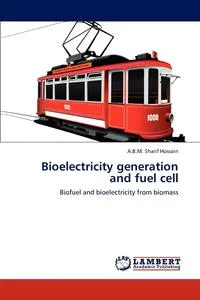Bioelectricity generation and fuel cell
Автор: A.B.M. Sharif Hossain
Переплёт: Мягкая обложка
📗 Biomass is biodegradable, less CO2, CO, H2S, HC and NOX emissions as well as renewable energy resource for the creation of steam and electricity, transportation fuel, manufacturing industries as well as a solvent in the laboratory. Agricultural crops residues (biomass) have emerged as one of the promising sources for bioethanol production. Such an approach can contribute to solve major problems of air pollution resulting from green house gas emission evolution and future crisis due to the shortage of energy sources. The controlling factors that affect the production of bio-fuel (biodiesel and bioethanol) from biomass are described. The optimal value of the parameters such as temperature, pH, yeast and enzyme percent and fermentation period are found and explained. Different types of fuel cell and electricity generation were explained from different scientific sources. Nowadays biofuel as well as biofuel cell is an innovative and important energy source from biomass by which power can be generated both in transportation and electricity. Still no research work done in this regard except few demonstration. That is why, the scope of innovative bio-fuel cell for electricity generation.
Мнения
